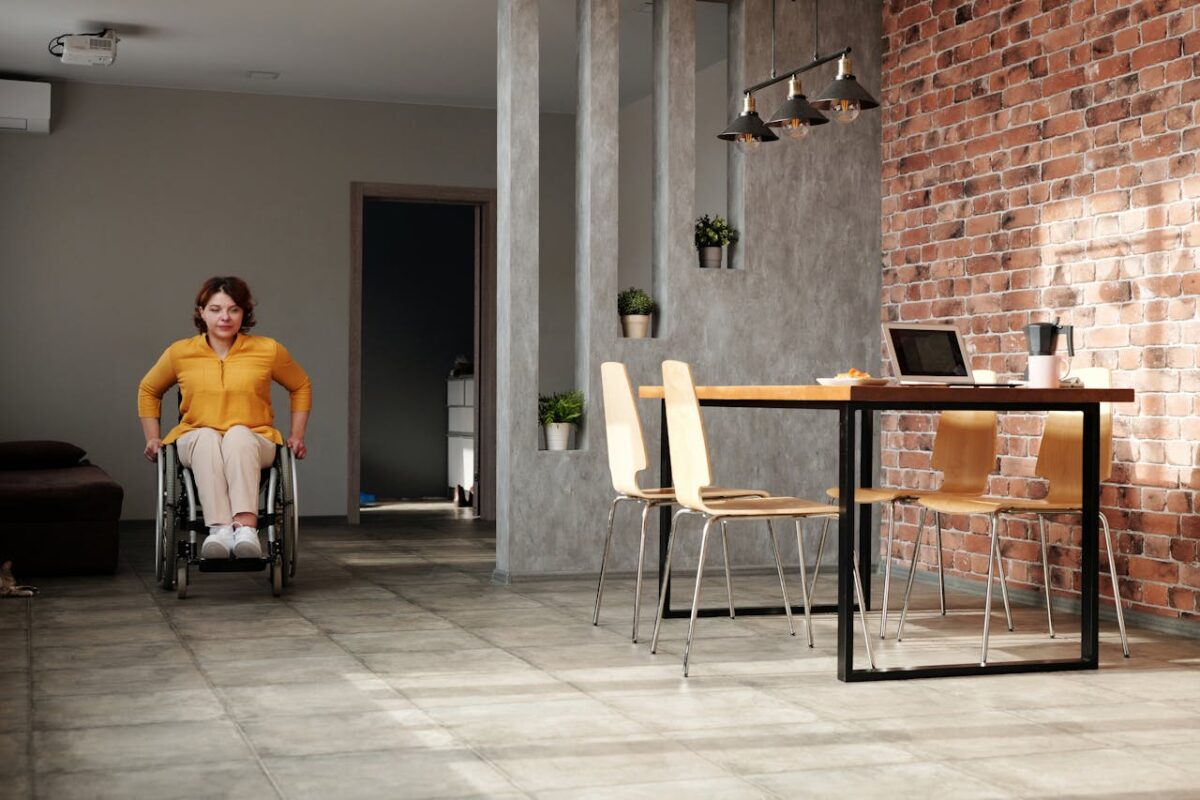Valet trash is known for its convenience—but for residents with disabilities, it may be more than just a perk. It could be the difference between independence and daily struggle. As more multi-family properties adopt this amenity, a key question arises: Is valet trash ADA-compliant?
While federal regulations don’t specifically mention valet trash, when implemented thoughtfully, the service aligns well with both the Americans with Disabilities Act (ADA) and the Fair Housing Act (FHA) by reducing physical barriers and promoting universal accessibility. Here’s what property managers, developers, and residents need to know.
What Is Valet Trash?
Valet trash is a door-to-door waste collection service offered in multi-family settings—apartments, condominiums, senior living communities, and student housing. Residents place trash in designated containers outside their doors, and trained valets collect and dispose of it, typically five nights per week.
It eliminates the need to carry heavy trash bags long distances or down stairs, which is a critical benefit for individuals with mobility challenges or age-related limitations.
Does Valet Trash Align with ADA and FHA Standards?
ADA Guidelines apply to public and common-use areas in apartment complexes—such as entrances, lobbies, and hallways—and require these spaces to be accessible to residents with disabilities. While valet trash isn’t specifically mentioned in ADA codes, services that are provided to the public or tenants must be accessible.
Bringing waste collection to a resident’s doorstep removes the need to traverse uneven pathways or access distant dumpster enclosures, which are often out of reach for wheelchair users or those with limited mobility.
The Fair Housing Act strengthens this further. It mandates that housing providers make reasonable accommodations for residents with disabilities. Valet trash qualifies as one such accommodation, especially when traditional waste disposal methods create physical or logistical barriers.
How Valet Trash Enhances Accessibility
When designed properly, valet trash service can serve as a practical example of universal design—a framework that ensures usability for everyone, regardless of age or ability.
Key accessibility benefits include:
- Reduced physical effort: No need to carry trash to remote dumpsters
- Elimination of architectural barriers: No steps, inclines, or narrow pathways to navigate
- Safer waste disposal: Minimizes injury risk from lifting or transporting heavy bags
- Cleaner shared areas: Less trash overflow in communal dumpsters improves air quality and reduces slip hazards
For residents with visual impairments, clear signage and well-communicated schedules can make participation seamless. For those with limited strength, lightweight, manageable bins ensure the service remains inclusive.
Legal Responsibilities for Property Managers
While valet trash can enhance accessibility, property managers should take proactive steps to ensure the service remains compliant and equitable:
- Ensure trash containers are placed at accessible heights
- Provide clear instructions verbally or in large print for residents with visual impairments
- Conduct accessibility audits to assess common areas and collection paths
- Train staff to offer respectful assistance when needed
Since valet trash is offered as a community-wide amenity, it must be accessible to everyone. Designing the service with this in mind not only meets legal expectations—it also builds trust and resident satisfaction.
Ally Waste’s Commitment to Universal Design
Ally Waste is a national leader in valet trash and recycling solutions for apartments, senior housing, and student communities. Their model is built on accessibility and inclusion, offering:
- Doorstep collection that eliminates unnecessary travel for residents
- Highly trained, professional valets who also service pet stations and shared bins
- Thoughtful service design aligned with universal design principles
- Responsiveness to resident feedback, ensuring any accessibility gaps are quickly addressed
Their growing presence in senior living and campus housing reflects a focus on populations that benefit most from barrier-free services.
Real-World Impact
Surveys show that over 50% of U.S. apartment complexes now offer valet trash, and residents are willing to pay an average of $25/month for the convenience. The National Apartment Association has linked services like this to improved retention—up to 5% increases in lease renewals—highlighting the business case for making amenities both accessible and valuable.
For properties seeking ADA-aligned solutions that also boost resident satisfaction, valet trash is an ideal fit.

